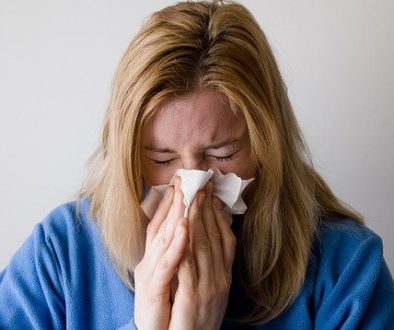Menopause
Menopause is a normal stage in all women’s lives, but it can be a difficult one for some. Read more to understand the effects of hormonal changes and learn how to relieve them as you go through this transition.
What is Menopause?
Menopause is a normal body process that marks the end of fertility in women. It is the result of a gradual decrease in the production of the female sex hormones estrogen and progesterone. Menopause ends when menstruation hasn’t occurred for at least 12 months.
Natural menopause usually occurs in women between the ages of 40 to 60. Some factors can influence the age when women start menopause. For example, women who have had children or who have taken oral contraceptives tend to get menopause later, whereas women who smoke tend to go through it earlier. Women often go through menopause at the same age as their mothers.
Menopause symptoms
Hormonal changes during menopause can cause a number of symptoms that vary a great deal from woman to woman. For some women, this period of life is very difficult, while other women barely notice the change. For 10% to 15% of women, menopause has no symptoms other than irregular periods.
Below is a list of possible menopause symptoms:
| Vasomotor | Urinary and genital |
| Hot flashes Night sweats Headaches, migraines Dizziness Insomnia, disturbed sleep | Painful sexual intercourse Urinary tract infections Vaginal infections Mild incontinence |
| Psychological | Skin and hair |
| Anxiety Sadness Irritability Mood swings Decreased sexual desire and sensations Memory and concentration problems Depression | Dry skin Hair loss Growth of facial hair Tingling in the hands and feet |
| Muscles and joints | General |
| Back pain Joint pain Muscle pain | Fatigue Weight gain Irregular periods |
A healthy lifestyle will help you maintain an optimal quality of life during this time.
| Urinary tract infections |
| Urinary tract infections |
| Vaginal infections |
| Vaginal infections |
| Vaginal infections |
| Vaginal infections |
| Mild incontinence |
Hot flashes
Hot flashes are without a doubt the most common symptom and one of the most inconvenient for women who get them. They often cause palpitations, headaches and dizziness, and they can even disrupt your sleep (night sweats). Hot flashes can also start before menopause and continue for up to 10 years afterward. They can even start before you experience changes in your periods. Relieving hot flashes and their symptoms, especially if they really bother you, can improve your mood and sleep.
Tips to relieve hot flashes
- Keep the room temperature cool and comfortable, particularly in your bedroom.
- Wear layers of clothing so that you can take off layers when you feel hot.
- Choose cotton clothes or bed sheets or those made of natural fibres that help the body breathe.
- Drink water or a cold drink when you get a hot flash.
- Use a fan.
- Breathe slowly and deeply.
- Practice relaxation techniques.
- Exercise regularly (at least 30 minutes, 5 times a week).
- Avoid alcohol, caffeine, and spicy foods.
- Don’t smoke.
Genital and urinary tract problems
Some women also experience frequent genital and urinary tract problems, such as vaginal dryness, pain during sex, mild urinary incontinence, or urinary tract or vaginal infections that become more frequent.
Tips to decrease genital and urinary tract symptoms
- Avoid alcohol and caffeine, as these have a diuretic effect.
- Avoid areas that are overly air conditioned and that have low humidity.
- Stay hydrated, preferably by drinking water, and don’t ignore the urge to urinate.
- Wear underwear made of natural fibre (cotton).
- Avoid pants that are too tight.
- Maintain an active sex life.
- Use a vaginal lubricant, which you can buy one over the counter at a pharmacy. There are two types of lubricants. One type is short-acting and needs to be used every day or during sex. The other has a more long-term effect and must be used 2 to 3 times a week.
Psychological symptoms
Menopause is also associated with psychological symptoms, such as mood swings, irritability, anxiety, and sometimes depressive symptoms. We still don’t know the exact impact of menopause on mood and emotions, but problems related to other menopause symptoms may play a role. For example, night sweats can disrupt sleep, and poor sleep can contribute to irritability, concentration or memory problems, fatigue and, in the long term, a changing mood.
Tips to decrease psychological symptoms
- Treat the other symptoms of menopause, e.g., insomnia and hot flashes, that may be causing psychological symptoms.
- Get regular physical activity. Exercise has a beneficial effect on mood and can help improve sleep.
- Learn to manage stress.
- Practise relaxation techniques.
- Get psychotherapy to better deal with the emotional upheavals and changes of this stage of life (e.g., children leaving home, parents’ loss of independence, retirement).
- Take time for yourself and your favourite activities.
Hormone replacement therapy
Your doctor may consider prescribing medication if your menopause symptoms are so severe that they greatly affect your quality of life. Hormone replacement therapy uses natural or synthetic hormones to increase hormone levels in the blood and reduce the symptoms of menopause. Hormone replacement therapy is available in different forms, such as tablets, gels, creams, patches, topical vaginal treatments, and vaginal rings.
Every woman must make her own decision, with her doctor, about whether to take hormones based on the following:
- Her health condition.
- The severity of her symptoms and their impact on her quality of life.
- Contraindications or risk factors (history of blood clots, unexplained vaginal bleeding, acute hepatitis, breast cancer, cardiovascular disease).
Your doctor may order a blood test to detect how much your estrogen and progesterone levels have dropped, but this procedure isn’t always done. When you start hormone replacement therapy, you need to be evaluated once a year.
Some studies have shown that, in some women, prolonged use of hormone replacement therapy (over 5 years) is associated with a slight increase in the risk of breast cancer, ovarian cancer, pulmonary embolism (blood clot in the lungs), heart attack and stroke.
On the other hand, hormones improve bone density, decrease cholesterol levels, and improve carbohydrate metabolism. You need to consider the risks and benefits of taking hormones for your particular situation.
For various reasons, some women need to undergo a hysterectomy, which consists of removing the uterus. Women who have had this operation may still have menopause symptoms. But if they do take hormone replacement therapy, they won’t need to take progesterone unlike women who have not undergone this surgery.
Natural health products
Some natural health products can help decrease menopause symptoms. They contain substances that are chemically similar to estrogen and that stabilize hormone levels. Black cohosh, evening primrose oil and isoflavones may be effective in some women. However, you should talk to your pharmacist before taking natural health products to make sure they’re safe and compatible with your health condition and any medications that you’re already taking.
Have more questions?
Health care professionals are available to answer your questions and advise you. Remember that menopause is a normal process and that positive changes in your lifestyle can have a significant impact on your quality of life and health. Don’t hesitate to discuss your concerns with your pharmacist, who takes your health and well-being to heart.




